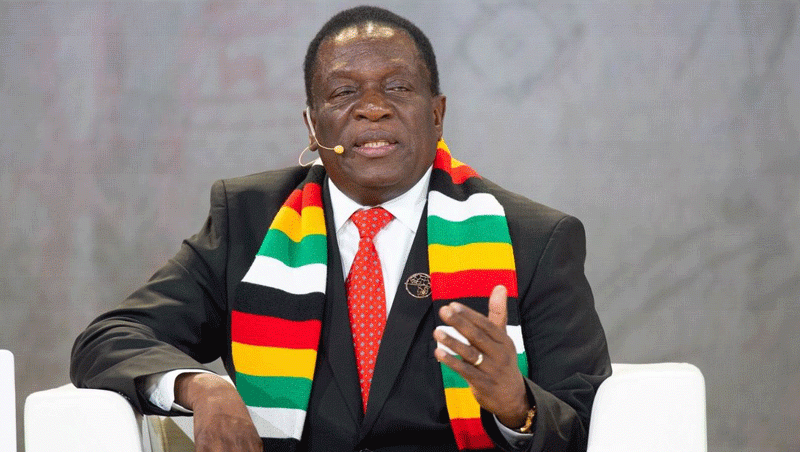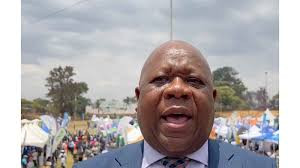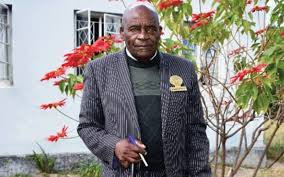
RECENT legislative developments in Zimbabwe portray the government as being only interested in its diaspora-based citizens when it wants them to contribute to the country’s economic development and monitoring them for perceived unpatriotic activities while in foreign land, but not enabling them to enjoy their rights as the country’s citizens.
Two legislative amendment Bills have been brought before Parliament. One Bill completely ignores the rights of citizens living abroad not working for government, while the other wants to punish the same citizens for unpatriotic behaviour.
Despite promises by President Emmerson Mnangagwa that he would do his best to ensure that diasporans would vote in 2023, the Electoral Amendment Bill does not come with sections to allow the Zimbabweans based abroad to vote.
It is nearly five years since Mnangagwa made that promise. One would have thought that with the widely publicised praise for diaspora-based citizens by the President, who has described diaspora-based citizens as “equal to, and just as important and as deserving” as citizens based in Zimbabwe, the Bill would have accommodated citizens based in the diaspora.
While the Electoral Amendment Bill turns a blind eye to the diaspora’s voting rights, a proposed edition to the Criminal Law Code Amendment Bill (The Patriotic Bill) states that any citizen or permanent resident of Zimbabwe who, within or outside Zimbabwe, actively participates in any meeting in which he knows or reasonably believes the object of the meeting involves the consideration of or planning armed intervention, to subvert or overthrow government or implement sanctions or trade boycott against Zimbabwe will be found guilty of damaging the sovereignty and national interest of Zimbabwe.
The Zimbabwe Diaspora Vote Initiative’s concern is that the law must be applied equally to all citizens, whether they are resident in Zimbabwe or not.
If, in the course of drafting the Criminal Law Code Amendment Bill, government realised that there are Zimbabweans living abroad, they should equally have remembered that there are over five millions living abroad during the drafting of the Electoral Amendment Bill.
Legislation around voting should similarly treat citizens equally whether they are based in Zimbabwe or outside the country.
- Mr President, you missed the opportunity to be the veritable voice of conscience
- ED to commission new-look border post
- Zanu PF ready for congress
- Zanu PF ready for congress
Keep Reading
The diaspora’s contribution to cash inflows has been widely acknowledged.
The Reserve Bank of Zimbabwe’s 2023 Monetary Statement states how economic activity remains robust supported by strong foreign currency receipts, including diaspora remittances.
A Diaspora Desk has been set up at the Reserve Bank of Zimbabwe to facilitate investments into the country from Zimbabwean citizens in the diaspora, and a Diaspora Bond targeting citizens living abroad has been initiated.
It is worrisome why government, through the Justice, Legal and Parliamentary Affairs ministy, only remembers its cash cow, the diaspora community, when crafting legislation to punish them for possible offences, while ignoring them when it crafts legislation that gives them the right to vote.
The Zimbabwe Diaspora Vote Initiative is appealing to other government ministries such as the Finance portfolio, which realises the importance of diaspora remittances and the Labour and Social Welfare portfolio — whose work is supported by citizens living in the diaspora in times of need — to intervene to ensure the diaspora vote is included in the proposed legislative changes. - Padmore Kufa — Zimbabwe Diaspora Vote Initiative
Zanu PF needs to change attitude for economic recovery
THIS morning, a friend asked if I saw any chance of our economy at least coming out of its coma. My answer was “no” without any malice or politicking.
The problem is too big for Finance minister Mthuli Ncube to go it alone, despite his acclaimed expertise and also not if Zanu PF is going to continue ruling by decree.
On further reflection, there are many other obstacles created by our changed thought processes over the years.
After independence, fraud severity was diluted, firstly by the banks not prosecuting for abuse of cheque facilities.
This opened the door to corruption becoming an accepted way of life. Corruption was then used as a tool to ensure political correctness and has become endemic.
Before 1980, salaries were advertised in the Press when job adverts were placed. In modern day Zimbabwe, even councillors, let alone ratepayers, are not allowed to know what their staff are paying themselves. Government salaries are treated as top secret.
This has allowed chief executive officers to pay themselves obscene salaries and not even government can do anything about it because they manipulated their contracts to make it “legal”. Morality does not come into it.
The police also contribute in no small way to our changing attitudes. Before 1980, to be a police officer was regarded as an honour and a respected profession.
Today, there is little respect for the police. Their abuse of power, partisanship and corruption has left them more of a scourge of society.
The Police Commissioner-General’s handling of the 2 000 corrupt traffic police officers by just transferring them does nothing to show he wants to adhere to the law.
They should have been prosecuted and, if found guilty, sacked without benefits. - Citizen
Lupane Council bloated at the top
THERE is an English adage which says: “Too many cooks spoil the broth”; and another one which says: “Too many chiefs and too few Indians ...” (No offence meant to the race mentioned). These two sayings aptly suit the Lupane Local Board (LLB).
The local authority is too top-heavy with directors whose remunerations are inordinately disproportionate to the capacity to pay the personnel.
There are six directors comprising the town secretary, internal auditor, town treasurer, the HR and administration, engineer and the health, housing and community affairs and middle management officers.
What we see is an astronomical monthly salary bill and a disabling monthly recurrent expenditure.
The money must be raised from the ratepayers and stakeholders; Lupane Town is an urban setting by name or by status on paper and not by qualification in terms of development.
The logical assumption is that the directors are on the same salary scales as their counterparts in substantive urban local authorities.
I am drawing a disparity here. In boxing, fighters are pitted against each other according to weight category so that no fighter has a weight advantage over another.
What is happening at Lupane Town is inexplicable. The town secretary has been absent from duty for a while now. Similarly the town treasurer.
Both their offices have been under lock and key and with burglar bars in place for good measure.
No one must occupy “their” offices and whoever is acting must do so using makeshift offices, invariably pool or communal offices, where there is no privacy for the good conduct of business.
The town engineer has been absent from work for months now and is reportedly on study leave.
The human resources and administration director went on attachment, so we hear, soon after completing her probation of 90 days.
Is this how it should be, that an employee qualifies for study leave after only four months’ service?
Is this not grotesquely strange? Yes, in certain circumstances employees have a right and entitlement to study leave and yet by the same token, an employee’s right must not interfere with, disrupt or prejudice the administrative processes of the employer/s.
Something is terribly wrong at the LLB. We hear through the grapevine that a senior employee resigned to avoid suspension.
The same grapevine has it that the town secretary was suspended, for the second time.
Why then lock the office and consequently disrupt administrative operations?
The office belongs to the local authority, which in turn belongs exclusively to the residents. - Martin Stobart











